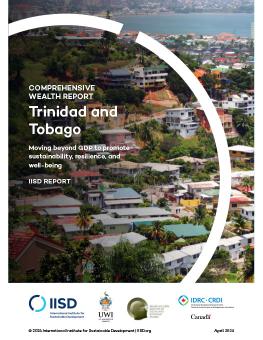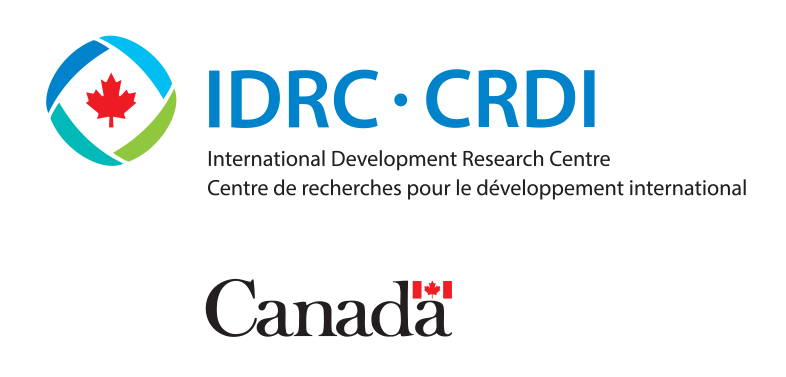
Comprehensive Wealth in Trinidad and Tobago
Moving beyond GDP to promote sustainability, resilience, and well-being
GDP growth suggests sound economic development in Trinidad and Tobago from 1995 to 2020. In contrast, a study of the nation's comprehensive wealth paints a picture of moderate progress at best and suggests the country is on an unsustainable path.
-
Half of Trinidad and Tobago's produced capital is in the petroleum industry, with a risk of stranding this investment as the world shifts away from fossil fuels.
-
Human capital is quite high but has been falling since the late 2000s. According to World Bank data, Trinidad and Tobago fell from 35th in 2009 to 46th in 2018 in terms of human capital globally.
-
Trinidad and Tobago's financial capital makes little contribution to its comprehensive wealth despite the country's efforts to build up a sovereign wealth fund.
For decades, GDP has been the primary metric policy-makers, business leaders, news reporters, and the wider public have used to judge how well a country is doing. GDP is rising? The country must be thriving.
However, this tight focus on GDP growth can lead decision-makers to favour policies with short-term economic benefits, even if they undermine well-being in the long run. It ignores the costs of economic activities on nature, society, and the well-being of future generations.
Comprehensive wealth measures the assets that form the basis of income. By gauging changes in a country's produced, natural, human, financial, and social capital—its comprehensive wealth portfolio—stakeholders have an opportunity to preview if GDP performance is sustainable in the long term.
Using metrics never before employed in Trinidad and Tobago—though drawn from local data sources—this report highlights the risks associated with overreliance on non-renewable resources like oil and gas for development. The growth of the country’s fossil fuel sector has led to excessive investment in the petroleum industry and, therefore, skewing too much of its wealth—human, produced, natural, and financial—in that direction. Investment in non-oil sectors, including agriculture, fisheries, and forestry, has received too little attention as a result.
Trinidadians and Tobagonians are not fully clear about this story and its consequences for their country’s long-term well-being because the news they receive focuses on GDP performance. While GDP performance has not painted a rosy picture in recent years, the deep and structural issues that threaten the nation's long-term well-being only become apparent through an analysis of comprehensive wealth.
You might also be interested in
Comprehensive Wealth in Ethiopia
Ethiopia has made progress in expanding its comprehensive wealth despite social, economic, and environmental challenges—but there is room for growth.
Comprehensive Wealth in Indonesia
A comprehensive wealth report for Indonesia reveals aspects of the country's development that are invisible through the lens of GDP growth alone.
The Urgency and Complexity of Moving Beyond GDP
Efforts to explore how the portfolio of capitals that make up Comprehensive Wealth—financial capital, produced capital, natural capital, human capital, and social capital—can give policymakers insights into how their policies build wealth for their countries in the long run.
Produced Capital in Ethiopia, Indonesia, and Trinidad and Tobago
Part of comprehensive wealth, produced capital is the value of the stock of all human-made assets used to produce goods and services in the economy.
